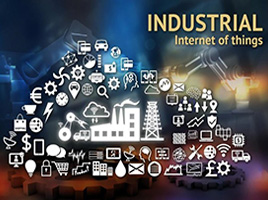[av_one_full first min_height=” vertical_alignment=” space=” custom_margin=” margin=’0px’ link=” linktarget=” link_hover=” padding=’0px’ border=” border_color=” radius=’0px’ background=’bg_color’ background_color=” background_gradient_color1=” background_gradient_color2=” background_gradient_direction=’vertical’ src=” background_position=’top left’ background_repeat=’no-repeat’ animation=” mobile_breaking=” mobile_display=” av_uid=’av-4al3xb’]
[av_video src=’https://www.youtube.com/watch?v=lpfOrJOXN1w’ mobile_image=” attachment=” attachment_size=” format=’16-9′ width=’16’ height=’9′ conditional_play=” av_uid=’av-jp3xynkw’ custom_class=”]
[av_textblock size=” font_color=” color=” av-medium-font-size=” av-small-font-size=” av-mini-font-size=” av_uid=’av-2w9rlb’ custom_class=” admin_preview_bg=”]
Happy new year from ERP News!
Here are the top ERP News of 2018.
- The Future of ERP Starts with Industry 4.0
- Today’s ERP is All About Emerging Technology
- Putting AI into Your ERP Strategy
- Is ERP Ready for the Blockchain?
- Using The Cloud to Cut Costs and Keep Them Low
- Global Cloud-based ERP Market is Growing at an Exponential Rate in Upcoming Years
- Guide to SME ERP Implementation Success
- What Does the Future Look Like for ERP Systems?
The Future of ERP Starts with Industry 4.0
The common impression that many have of enterprise resource planning (ERP) is based on the early functions of the systems. For example, an early function included manufacturing resource planning, which was designed to tackle a specific business process such as managing the mass production of standardized goods on assembly lines.
Today’s ERP is All About Emerging Technology
In the digital age, and with turbulent market conditions, many current business models are presented with substantial opportunities and threats. In order to not only survive but thrive, organizations must be increasingly agile. Companies need to be able to make prompt, informed decisions about how to adapt to rapid and constant changes and then implement new strategies. In addition, they need to be able to quickly manage performance, constantly monitor what’s working and what is not and redeploy resources to the best opportunities and returns. So, where does finance fit into all of this?
Putting AI into Your ERP Strategy
ERP lies at the heart of most organisations’ business processes and is undergoing a radical transformation to meet the demands of digital business. The postmodern ERP era creates a stable, agile core that supports differentiated processes to deliver business outcomes.
Is ERP Ready For The Blockchain?
According to a recent Oracle report on new technology trends, blockchain is among the leading technologies set to transform supply chains, reporting, and the ways that businesses work. Blockchain has initially been built for financial tasks but could potentially end up automating routine transaction processing, eliminating manual tasks and the likelihood of errors.
Using The Cloud to Cut Costs and Keep Them Low
By investing in a serverless approach, your business can slash capital expenditure and create a tighter grip on operational costs. The result is an agile approach to infrastructure that is fit for the digital age. The scalability of the cloud-based ERP isn’t just a benefit when it comes to innovation and trialling new services.
Global Cloud-based ERP Market is Growing at an Exponential Rate in Upcoming Years
The Global Cloud-based Enterprise Resource Planning (ERP) market is valued at 14700 million USD in 2017 and is expected to reach 31500 million USD by the end of 2023, growing at a CAGR of 13.6% between 2017 and 2023. Global Cloud-Based Enterprise Resource Planning (ERP) Market Research Report Provides Information On Products, Services, Trends, Top Companies, Verticals, Countries, Material, Application, And Geography Globally. This Report Will Help The Viewer In Better Decision Making.
Guide to SME ERP Implementation Success
Enterprise resource planning (ERP) software solutions were once the exclusive domain of large businesses. But time has changed, and now small to midsize enterprises (SME) are increasingly turning to ERP systems to streamline and improve their business processes.
What Does the Future Look Like for ERP Systems?
Looking ahead, most agree that ERP development will happen in the cloud, making information more accessible, more affordable and ultimately more useful to more people. So, as ERP cloud moves in, what other ERP developments are likely to follow?
[/av_textblock]
[/av_one_full]







